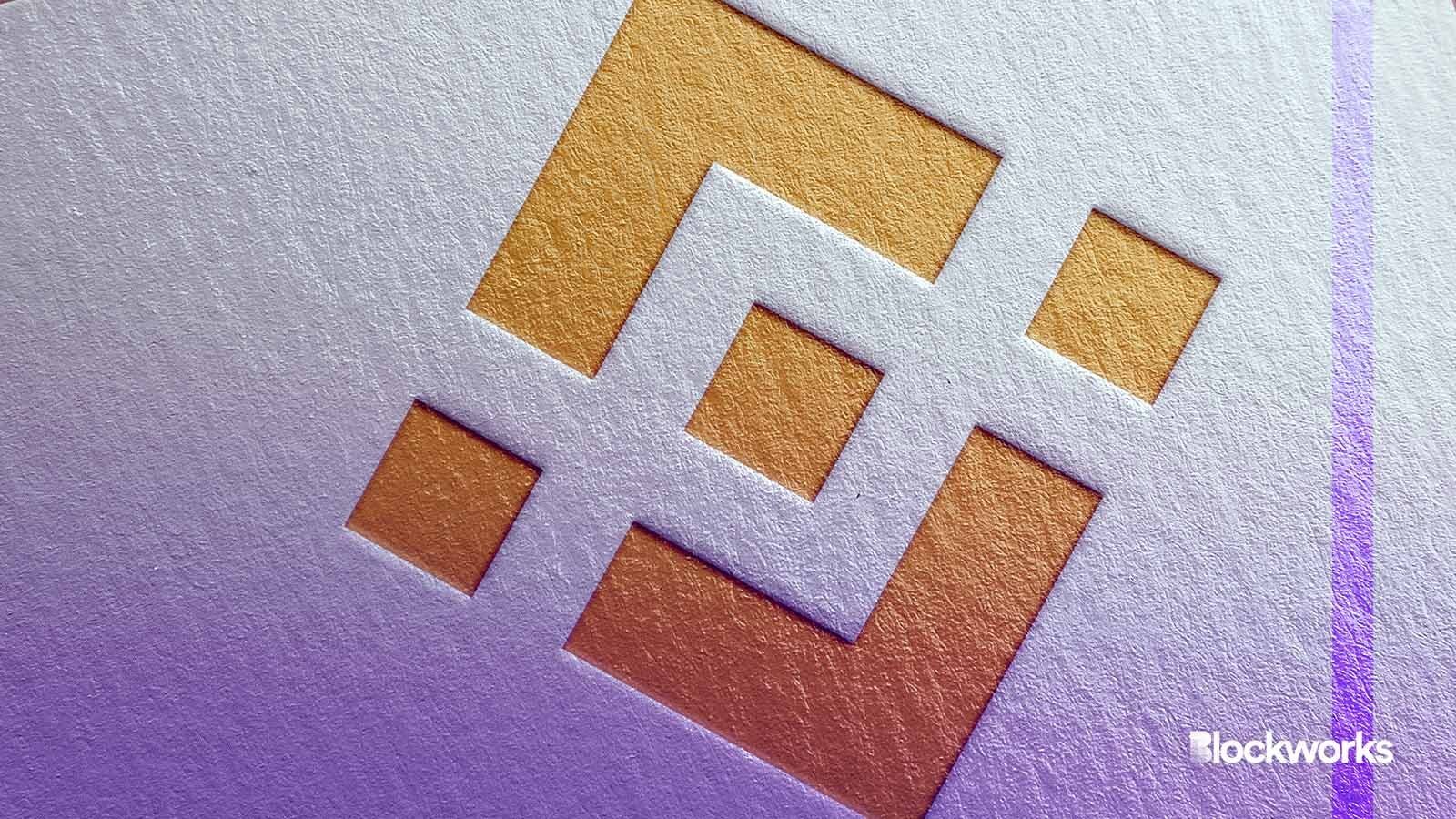Binance embraces counterparty risk reduction
In a bid to woo institutional crypto traders, Binance wants help from a bank

ymcgraphic/Shutterstock modified by Blockworks
A recent initiative by Binance introduces what it describes as “the world’s first cryptocurrency triparty arrangement with a third party banking partner.” This project aims to attract institutional clients who prefer not having their capital solely under the control of the exchange.
Ever since the FTX fraud, crypto traders have been leery of assurances by exchanges that they always have all the assets they say they do, backing deposited capital. The concept of proof-of-reserves got a big boost in response as one approach to addressing the longstanding issue of counterparty risk.
That’s a risk retail investors became well acquainted with in 2022, when multiple centralized crypto firms crashed into bankruptcy.
But as Catherine Chen, Binance’s head of VIP and institutional said in a statement, it’s also a major concern in the realm of institutional investment.
Read more: FTX began to unravel one year ago today: A timeline
“Our team of crypto natives and traditional finance professionals has been exploring a banking triparty agreement for more than a year to address their concern,” Chen said.
This new arrangement would allow institutional investors to access Binance’s trading liquidity while placing their trading collateral off the exchange entirely, under the custody of a third-party banking entity.
But, exactly which bank or banks is not yet clear.
“We are not sharing any additional information regarding our banking partners at this time,” a spokesperson told Blockworks. Binance would only say they “are in discussion with an array of banking partners.”
Binance has been the biggest player in worldwide cryptocurrency exchange for some time, but following its record-breaking $4.3 billion settlement with the US Department of Justice, trading volumes may be waning, even as net outflows remain muted.
While Binance’s initiative to replicate a traditional financial framework in the crypto sphere seems promising, it’s also not alone in offering custody options. Fireblocks just released a similar system in partnership with derivatives exchange Deribit.
And the newly launched Cube Exchange takes itself out of the custody equation altogether.
For those able to handle self-custody, removing counterparty risk entirely is a major selling point of decentralized exchanges, which are designed to facilitate peer-to-pool trading.
As Binance forges ahead with its solution, one perk the company points to is that customer collateral can include fiat equivalents like Treasury bills. These assets not only secure trading activities, but also yield returns simultaneously.
As we await further details on how this feature will work in practice, one thing’s for sure: Binance’s competitors are smelling an opportunity.
Get the news in your inbox. Explore Blockworks newsletters:
- The Breakdown: Decoding crypto and the markets. Daily.
- 0xResearch: Alpha in your inbox. Think like an analyst.






